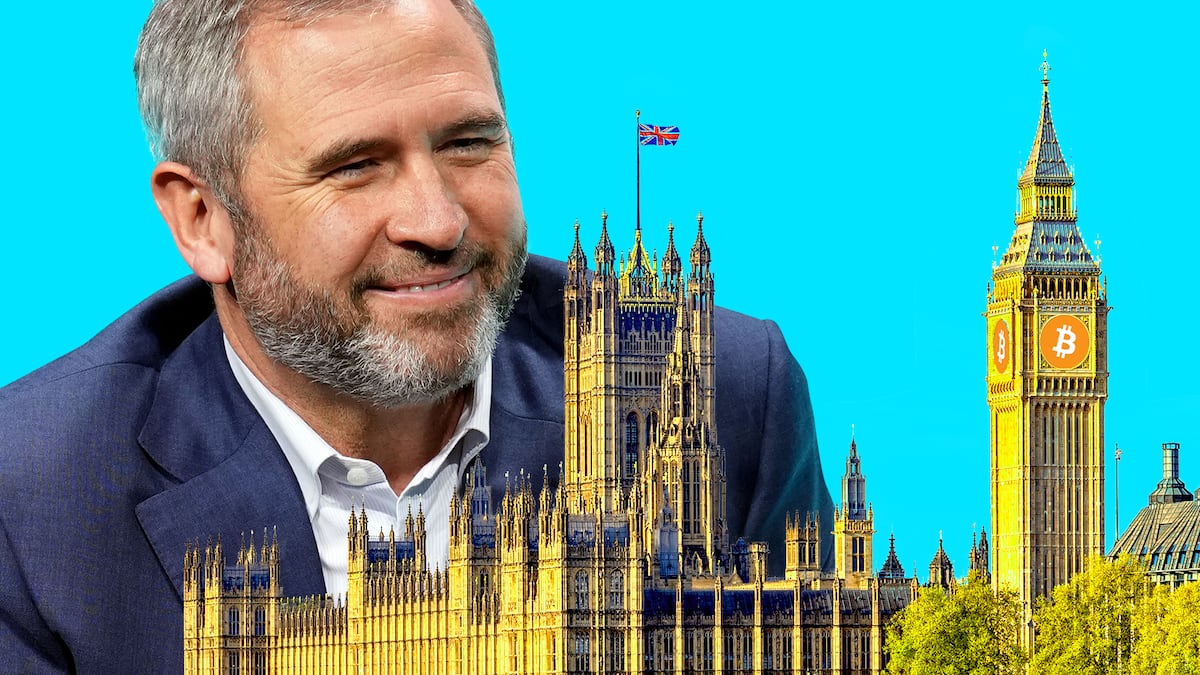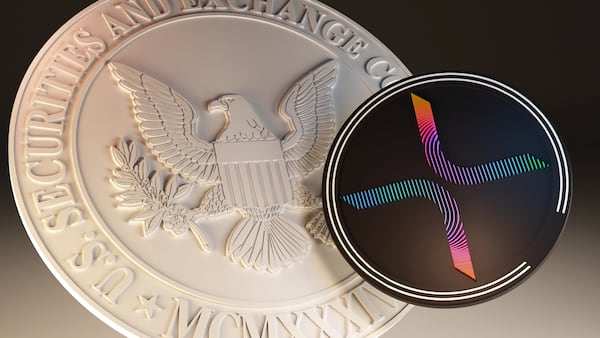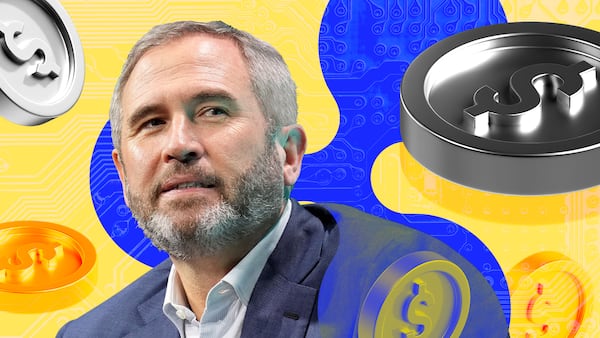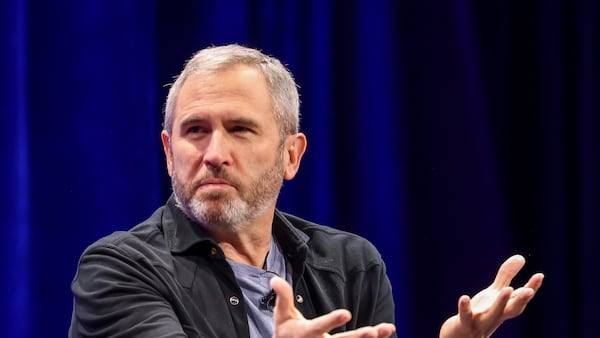- Ripple wants new UK crypto laws.
- New laws will unlock more capital for the cash-strapped nation, it argued.
- The XRP contributor discouraged Westminster from copying MiCA.
The UK can’t afford to lag behind the European Union and the United States on crypto laws.
That’s according to Ripple executives who this week urged the British government to catch up or risk losing out on trillions of pounds’ worth of business opportunities.
Politicians have a chance to bolster the financial industry, which contributed £208 billion to the economy in 2023, with new regulations to enable the industry to leverage blockchain technology, said Matthew Osborne, Ripple’s policy director of Europe.
“Time is of the essence to show that the UK is open for business,” Osborne told reporters at Ripple’s London Policy Summit on Wednesday. “The UK has lagged behind other major jurisdictions.”
The call to action comes as the EU is busy implementing its sweeping new Markets in Crypto-Assets regulation to police the industry.
Across the pond, US President Donald Trump has been busy relaxing crypto rules.
Even as Ripple held its media briefing, the US Congress is set to review a Republican-backed stablecoin bill, which Democrats have dubbed a handout to the crypto execs who backed Trump’s campaign.
Ripple is a contributor to the XRP cryptocurrency, which it uses to facilitate cross-border payments.
Money issues
The UK needs the money, Ripple said. “The UK government does have a lot of pressure on it from a fiscal point of view,” Osborne said.
The new Labour government is grappling with the double-whammy of a cost of living crisis and what has been called the “psychodrama” of Trump’s trade war.
Crypto laws can help the country tap into the windfalls of the industry, the XRP contributor argued.
The stablecoin market itself would be worth $2.8 trillion by the end of the decade, said Cassie Craddock, managing director of the UK and Europe at Ripple
The influential Boston Consulting Group estimates that tokenised assets will be worth $16 trillion by 2023. The total crypto market is worth just north of $2.8 trillion.
But to tap into those gains, the government needs to hurry or risk being leapfrogged, Osborne said.
“We’ve seen other major jurisdictions — such as the EU, Singapore, the UAE — introduce regulatory frameworks for crypto assets and that still hasn’t happened in the UK,” he said.
He acknowledged that there have been some movements on crypto regulations in the UK. In November, the Financial Conduct Authority published a roadmap for how it plans to roll out new rules.
But Osborne said that the implementation of those rules could “easily slip into 2027” at a time that the industry craves regulatory clarity.
“Not having a regulatory framework is actually a much worse problem than introducing a regulatory framework [that] leaves some questions still to be answered in the future, or some details that need to be fixed in the future,” Osborne said.
Not MiCA
Osborne was less eager for the UK to simply adopt MiCA and then adjust it to UK-specific needs.
“We don’t think that’s the answer,” he said. Osborne argued that the EU law was great as a first mover and had provided clarity for the industry, but that it imposed “a very extensive, detailed, and burdensome regulatory framework.”
He singled out rules that required firms to be located in the EU to operate across the bloc as particularly burdensome. That would discourage the international nature of crypto and shut out firms from other jurisdictions, he said.
MiCA is also too focused on crypto’s inherent risks, Osborne said. Instead, he’d like to see laws that are more supportive as the industry grows, and that can strike the right balance between the two.
“We actually need regulation for the sector. We’re not asking to be unregulated,” Osborne said.
Sunak’s legacy
Former UK Prime Minister Rishi Sunak pledged to transform the country into a global crypto hotbed.
Sunak’s government positioned itself as an industry ally. His ministers urged regulators not to undermine crypto companies by stifling innovation and enforcing rules too strictly — for instance by only approving 14% of companies who applied to operate as crypto asset firms.
Ripple is one of the firms the FCA has yet to approve. “We won’t comment on the status of the license, but it is a key initiative for us,” Craddock told DL News in a separate interview on the sidelines of the summit.
The Sunak government’s efforts stalled when he called and subsequently lost a snap-election last year. The loss threw the budding crypto rules into limbo.
“The current government hasn’t made a commitment like that to date,” Osborne said.
Update April 3: Ripple’s founders helped develop the XRP Ledger, but the network has been open source since 2015. The company’s RippleX team engages the XRPL Dev community, providing tools, services, infrastructure support to drive Ledger adoption and innovation. The story has been updated to reflect that.
Eric Johansson is DL News’ News Editor. Got a tip? Email at eric@dlnews.com.









